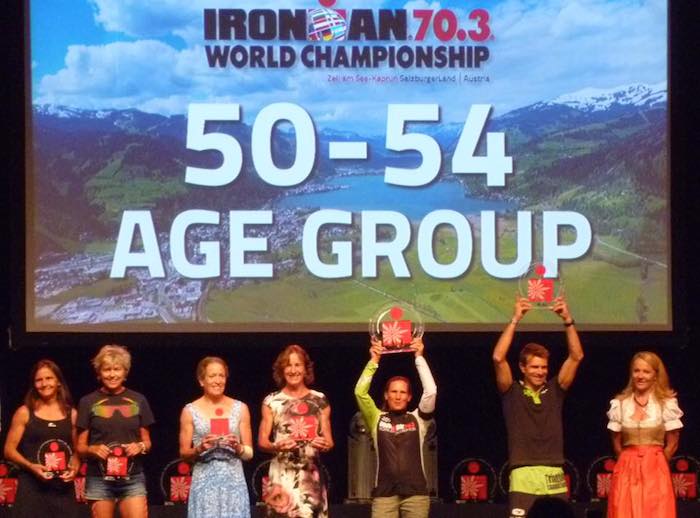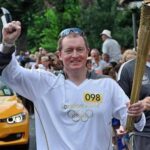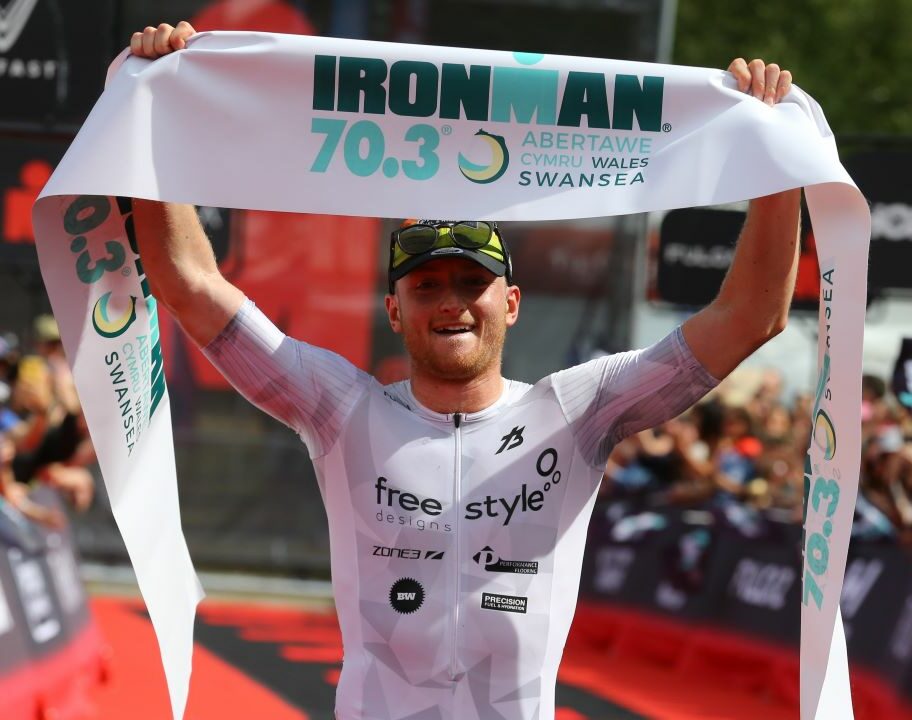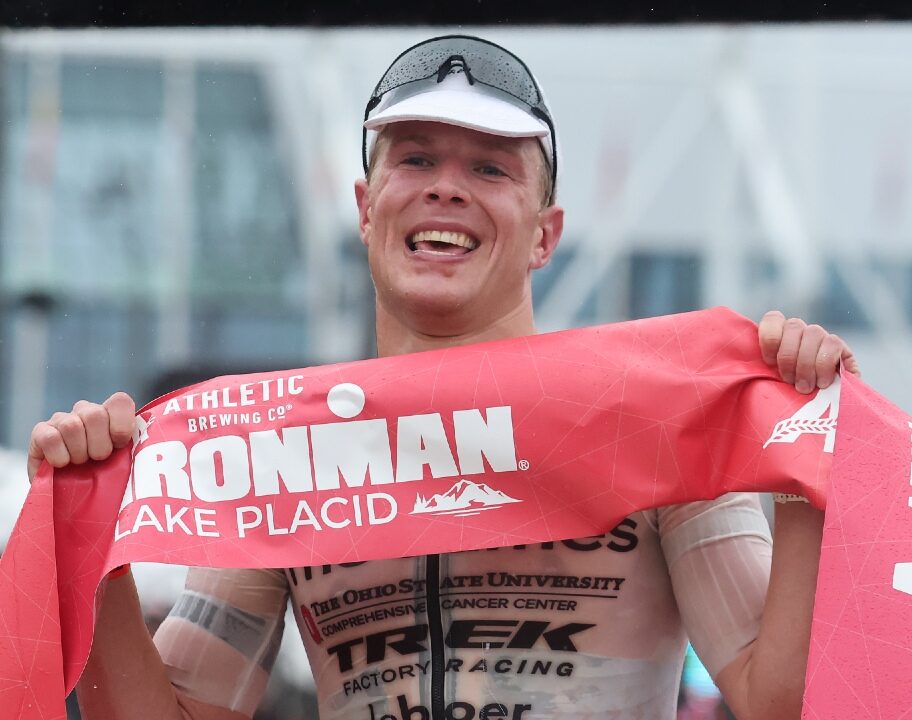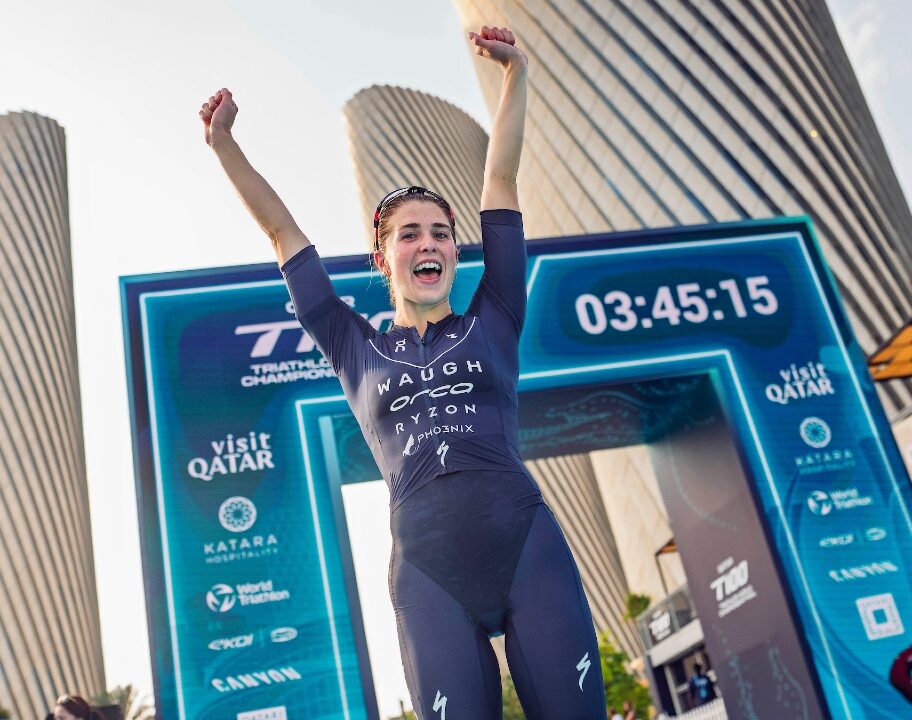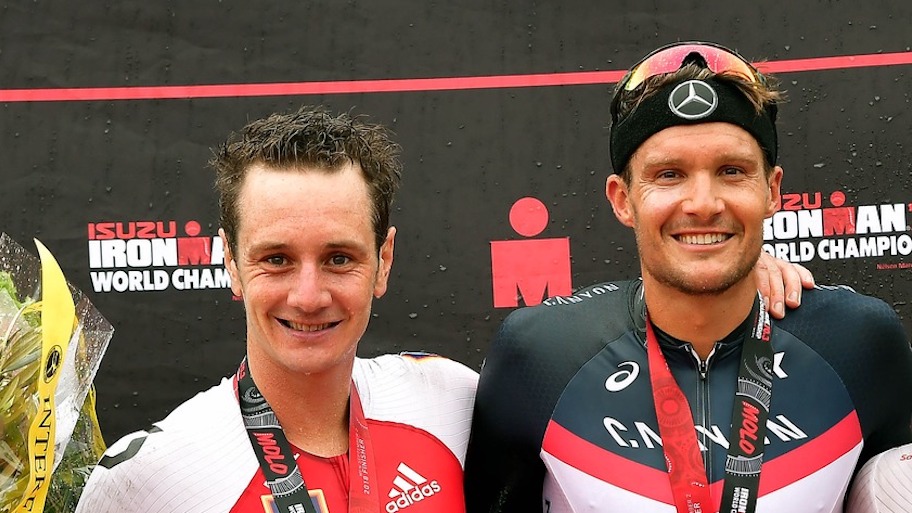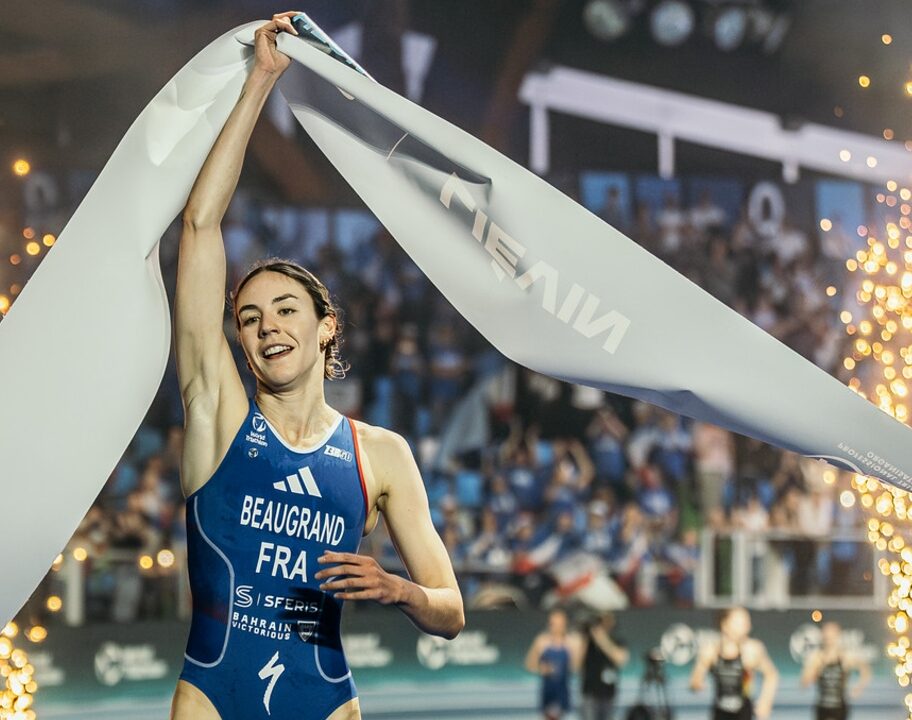When Gill Fullen recently finished first overall at the British Duathlon Age-Group Championships in Bedford, it probably wasn’t a surprise to many who are close to the sport. Even the fact Gill is now in her fourth season in the 50-54 category makes the performance – by her incredible standards – pretty much standard. After all, she has been producing similar performances for many years now – even doing the same on an international level.
But, this isn’t really a story about Gill the ‘athlete’ – as extensive as that alone could be – because, what makes that result so special is what Gill Fullen has had to endure over the past year.
In February this year, Gill contacted me privately, having become aware that some years ago, I had been through cancer treatment myself. What I wasn’t aware of until that contact, was that Gill was currently going through her own battles. Only now can I appreciate just how significant the last few months have been for her.
“I mentioned I would be out of the loop in terms of racing for a while; I also had a cancer diagnosis and have now gone through surgery and chemotherapy. I dearly want it to have a happy ending, so I’m not ready to put it out there until I’m back winning races (she says hopefully). I’m hoping that won’t be in the too far distant future.”
Well – MUCH sooner than I was expecting – this is part of that process. I know that MANY of you will know of Gill. You’ll likely have raced her (probably have been beaten by her…), but almost certainly had huge respect for what she has achieved in her multisport career over the last decade. However, the vast majority of you will have known nothing about this. Until now.
Grab a coffee, set some time aside and enjoy this interview. It is not an easy subject and Gill is incredibly honest and open. The interview is long – for which I make no apologies – but I feel is all the better for it.
Let’s set the scene. You’ve been very successful as an age-group athlete in multisport for many years now (ITU results back to 2011). What was your sporting background, and how did you get into all of this?
I had run a busy competition and livery stables for over 10 years and moved to a “normal” house without 24 hour responsibilities. I got bored. And fat.
I already practiced Karate and put my energies into that until I gained my 1st Dan (black belt). Friends were doing Rat Race events, which sounded just up my street and they were looking for another team member. I thought I would have to get into shape if I was going to join them, so I started doing some swimming, (whilst taking my son to diving club), some running (mainly whilst son was playing rugby), and dug out my old bike that I’d commuted into Birmingham on in my student days to do some cycling.
I aimed at the local sprint series of triathlons and couldn’t believe how terrified I was. The first one was incredibly hard work but within five minutes of crossing the finish line, I knew I was hooked.
I should say that my day job is training and riding horses, dressage in particular, so I have a background in sport in that respect…
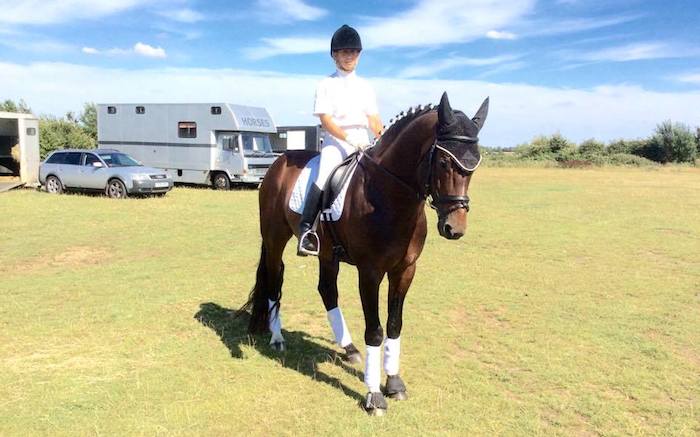
And how long from ‘terrified’ of local sprint triathlon…. to international terminator / Fullenator – that is a pretty big leap for most?!
Not very long at all! Realising I needed help and guidance on training, I joined the local running club, Bedford Harriers, who were about to celebrate their 25th anniversary and were looking for 25 intrepid (foolish?) members to compete at IRONMAN France in Nice. I looked around at the others who were entered and saw no reason that I shouldn’t do it too.
Having completed an IRONMAN (5th in AG I think on that one), I found I had qualified for the ITU Long Distance Triathlon Championships in Henderson, Nevada and it seemed too good an opportunity to miss. I was in complete awe of a German competitor in my age group there, who had numerous European and World titles to her name, so I was shocked beyond belief when I came second to her by only a few minutes and claimed a silver medal.
That was the first ITU race of many and I absolutely loved it. Once again, hook line and sinker! So, first sprint triathlon 2009. First IRONMAN 2010, First ITU medal 2011.
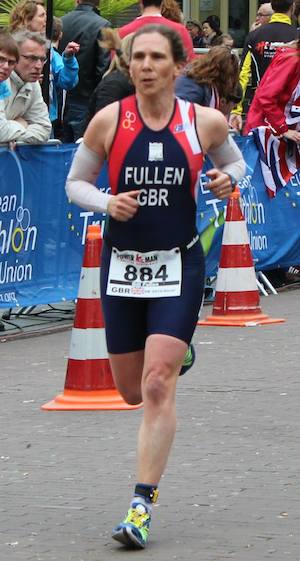
And since then, 10 GB starts, 8 Gold and 2 Silver across Tri and Du, Sprint to Long – do you have a favourite format / distance, as you appear to be happy to take on any – and good at all of them?
I think my favourite distance is the 70.3. It’s long enough, but not anywhere near as demanding as a full distance. You can really get into it and enjoy it without needing a month to recover. The shorter races are harder in terms of effort and I hate the Sprints! I only went to Horst for the ETU Sprint Duathlon as it was the only distance I didn’t have a gold medal in that year and I thought I’d better fill the gap. Coming in first lady overall was a bit of a surprise. I’ve not been tempted to do a sprint since!
I love duathlon, but that was always going to be the case where my swim is the weakest discipline and my run the strongest.
Well, there has to be one person who loves Duathlon!!!!
Careful, I have Jez Cox on my side!
It’s too damn hard?!
Precisely! Harder the better.
Ok, so in many ways the first half of 2016 looked liked ‘normal service’ – dominating the ETU Powerman, winning World Duathlon (again) in Aviles, and also adding something new, by almost breaking an AG British record for the marathon in Boston. Do you feel you were still improving at that point, despite the number on the calendar….?
Yep, definitely still improving and so many challenges still ahead that year. I was booked in for the 70.3 Europeans as an alternative to the 70.3 World Champs, having decided that competing in Australia two years in a row was not feasible. I was also registered for IRONMAN Barcelona as I seem to have only done hilly and tough IRONMAN courses and wanted a better PB for that distance. Also quite a few of my club members were entered so it was due to be a great club outing.
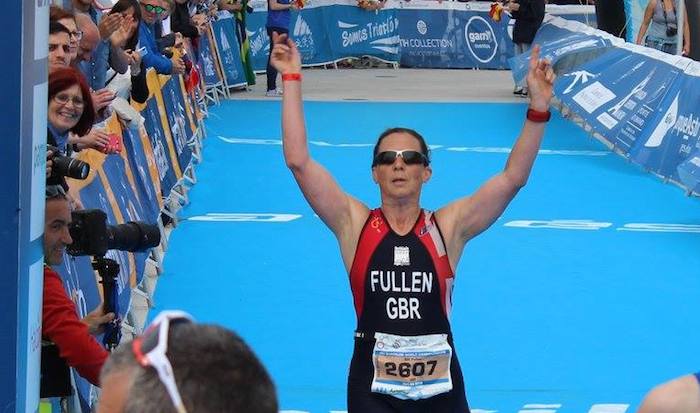
And then…. your results went quiet, and plans had to change. When did you first realise that something wasn’t quite right?
I had a routine mammogram in February, my first one ever. They called me for follow-up tests in March and I was finally diagnosed in April. I ran Boston knowing I had cancer and felt like a dark cloud was descending on me. I went to Aviles similarly knowing I needed treatment, but without any clear idea of what that would be at that stage.
When the doctors told me I needed surgery I struggled to accept it. I also convinced them to put it off until the end of the season (after IRONMAN Barcelona). It was only when I developed a running injury and wondered if I should have the surgery earlier after all if I was not running anyway, that I went for a second opinion and they found a tumour that could not wait.
Even then I didn’t cancel my booking for the 70.3 or IRONMAN Barcelona. I was convinced I would recover in time to still compete. How naive was I?
The last few years, as an athlete, you’ve seemed pretty indestructible – and probably got used to friends and athletes calling you super-woman and similar. How did finding that news feel. It would appear that performance wise, you didn’t actually have any ‘warning signs’ at that point?
The only sign I had was that all through my marathon training I struggled to lose weight. I never did get to what I consider my ideal race weight. Of course at the time you just put it down to age or snacking or a million other things, but it turns out it probably is connected with the cancer. Otherwise there were no signs at all; I was running the best I’d run in my life, no lumps or bumps, nothing to see here!
So, I was knocked for six. I am usually positive to the point of being completely unrealistic, so I never really believed that anything was wrong, even when I got the call back.
I eat very healthily, I don’t smoke, I don’t drink and obviously I am reasonably fit. Those are all the things you are meant to take care of to avoid cancer, so how on earth was I likely to have it? There is breast cancer on one side of the family, but apparently that is not sufficient genetic cause for concern.
GILL FULLEN’S ITU/ETU AGE-GROUP COMPETITION RECORD
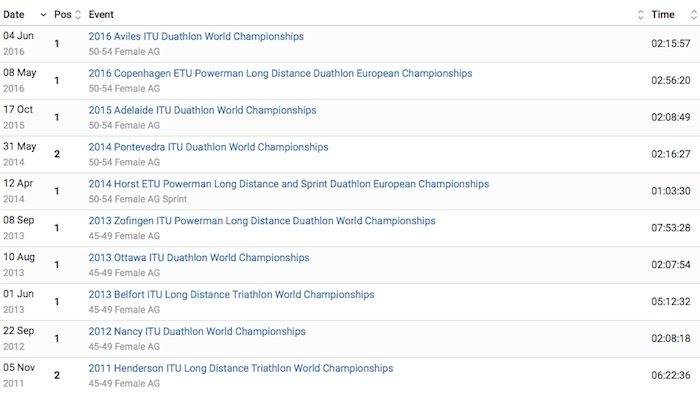
Given that, was there any element of denial? When I had my own cancer diagnosis back in 2006, it was actually quite easy to accept (and in a way, good news!), because physically I’d been awful but with no explanation. It sounds a different scenario for you?
Ah that would be very different. I can see how that could be a relief in some ways; at least to actually have a diagnosis.
There was no denial. I was in fact very accepting and never went through the “why me” syndrome. It’s a disease that affects a huge amount of people, so “why not me”?
Ok, so you’ve had the ‘news’ and then found out about the urgency for the op – what was next in terms of treatment? Did you need radio and/or chemotherapy too?
The first thing they told me right from the start was that they would need to do a mastectomy. It’s a hard word to say, but harder still to hear.
The surgeon deals with this every day and sees it as part of a process; they seemed to have lost the sense of how terribly drastic this is for a woman to lose part of her body and therefore identity. They started straight in on how simple it was to replace the tissue with muscle .. latissimus dorsi was suggested initially, This was enough to shock me out of sitting meekly in the chair and nodding. I said “no”
So they suggested abs would be a suitable substitute. I said no.
They suggested inner thigh muscle (remember, I ride horses for a living here…). Guess what I said?!
I needed to explain my lifestyle a bit to them at this point to make them realise that for me, lopping off a piece of my body and taking major muscle groups away to replace it was simply not going to happen. They were quite surprised that I didn’t seem keen to go along the normal surgical pathway.
So surgery was always on the cards and it wasn’t until after I’d had the operation and the lymph nodes tested that they would decide whether I needed further treatment in terms of radio or chemotherapy. As it turned out, they decided chemotherapy was called for.
I had convinced myself that since they were taking the whole affected area away, not just removing a lump, that there would be no need for follow up treatment and I could get back to training. I was in hospital for a couple of days after surgery and the nurses were banned from telling me where the gym was in the hospital (used for rehab)!
There’s a real ‘conflct’ there then, between ‘normal’ life and ‘athlete’ life – but for you, and many (even if not for most, and even if not as a ‘Pro’), that IS ‘normal’? Was is difficult to find medical people who could understand all those aspects?
The medical profession in general just don’t get athletes. Generally their advice is not to do the things that are causing you pain or a problem.
There was absolutely nothing on the internet about athletes and cancer. It seems to be a black hole. So I had no idea how treatment would affect me. I had loads of questions and could find no answers.
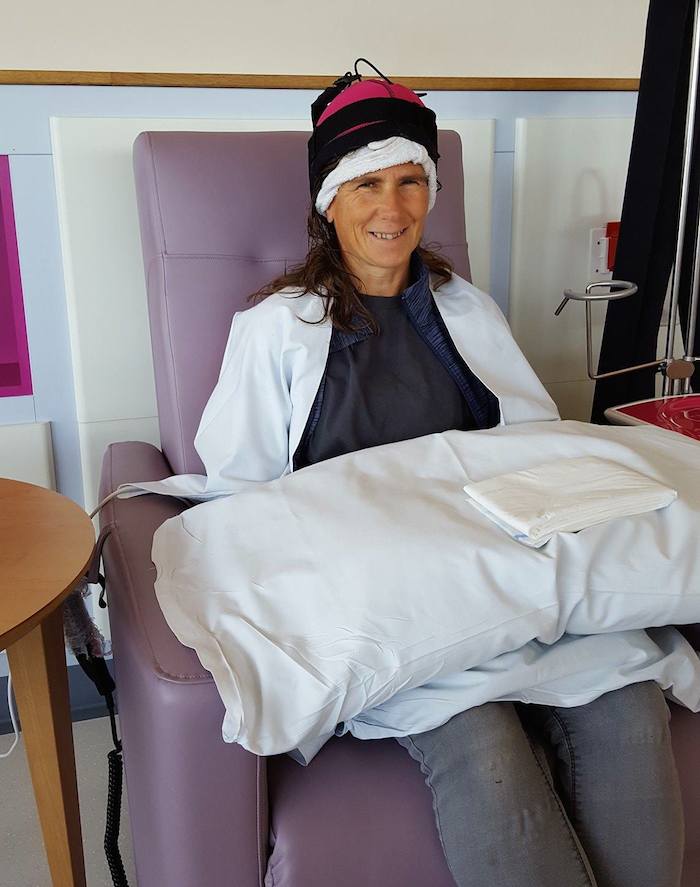
But in this case, doing sport didn’t ’cause’ the cancer – and, more likely, has and will make you better able to recover?
Yes. all the sport should have led to a lesser chance of getting cancer, but it didn’t. It did however hugely affect my ability to get through the surgery, to cope with the chemo and to recover subsequently.
When the surgeon told me I needed chemo that was my lowest point. I may have used the odd bad word as I sat in my car and ranted at the world. I knew I was recovering from the surgery and thought I’d got through the worst part, but I was wrong.
During the chemo I was determined to keep exercising.
Two days after my first treatment I went to the Peak District with a friend and rode for four hours. I was slow, I was underpowered and on the way back I felt really ill, but I did it and survived.
Did you know much about chemotherapy beforehand? I’ll admit, when I had my treatment back in 2006 it was somehow totally alien to me, as it wasn’t something that had impacted my family. It was almost a let-down to find that this mythical ‘thing’ was… some coloured liquid stuff that they drip feed into you over a several hours!
I didn’t really know anything about chemo. I did quite a bit of research as it wasn’t a given for me that I would go ahead with it. I remain convinced that diet plays a far more significant role in our health than we currently know. I went to see a homeopath who talked huge amounts of sense. It took me a long time to agree to the chemo. I raced cyclo-cross and XC throughout the treatment.
Exercising on chemo is a very surreal experience. I’m used to asking questions of my body and it responding, but the drugs made me feel like my muscles were being starved of oxygen and simply couldn’t respond. It was a bit like driving a Ferrari and finding it had a 2CV engine!
I was near the back and other runners were queuing up to race with me so they could put beating me on their CV. It gave me a whole new perspective on racing… one that wasn’t at the pointy end! I had a blast, chatting and enjoying the battles which weren’t going to feature on the podium.
A while since you’d seen that side of a race then!! That’s how the rest of us live 🙂
New perspective for me! When I ran the first XC during treatment I trailed in at number 265 … I’ve never been more than 3 before! I collapsed over the line, sank to my knees and cried quietly to myself. I hadn’t told anyone by then so people just assumed I was injured.
I also cycled to each session of chemo to clear my head and prepare me for a day of sitting in a hospital with an ice-helmet on having poisonous chemicals pumped in to me.
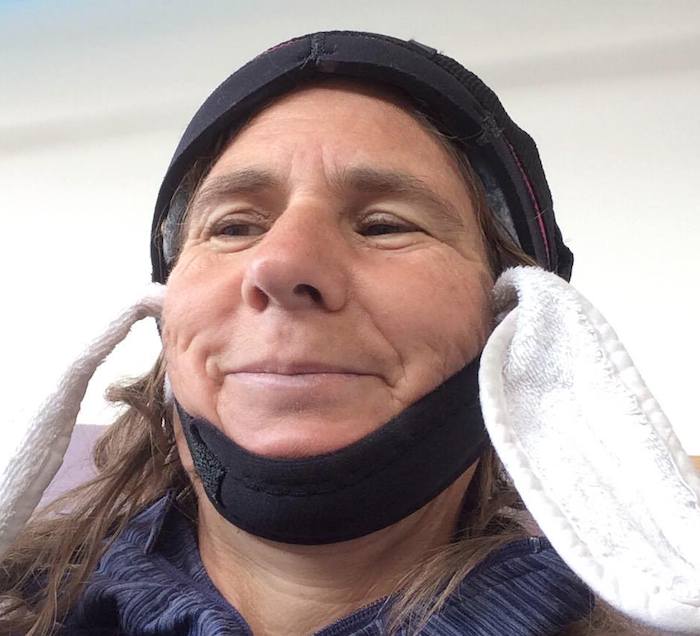
How long / what cycles of chemo were you on?
I had four cycles of chemo at three week intervals… Taxotere and Cyclophosphamide. I’m on injections every three weeks for a year too, so still ongoing, but the current drugs don’t really have any side effects (yet).
It was the amount of drugs given to combat the side effects that really upset me… antibiotics which play havoc with stomach health, steroids stopped me sleeping and made me hyper the whole time, anti-sickness drugs, laxatives, painkillers, the list was endless!
Sounds familiar… I know I certainly needed the laxatives at very predictable number of days after each treatment 🙂
My research led me to consider fasting to stop some of the negative effects of the chemo. In the end I fasted for four days before and one day after chemo and never took any anti-sickness tablets! I believe I could only do this because I was so fit and healthy in the first place.
When did you stop having the chemo treatments and was there a prescribed ‘rehab’ process? It sounds like you were already trying to do about 50 times more than the doctors would have suggested…?!
I had my final treatment at the start of December, meaning the cycle ended just before Christmas. There was no prescribed rehab process. The treatment was a game of two halves: the surgeons were very anti any kind of exercise. In fact I was ratted out by a nurse to the plastic surgeon when I had chatted to her about riding my horse with my drain still fitted. I rode the horse every day, irrespective of surgery / chemo etc and provided bike support on the Round Norfolk Relay all through the night shortly after surgery and with the drain taped round my middle out of sight. The surgeon was horrified that I was riding and suggested gentle walking was the maximum I should be doing.
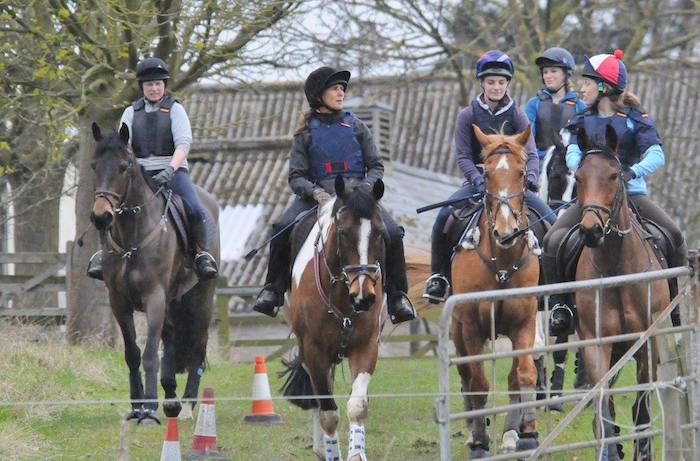
The oncologist was at the other end of the spectrum and was happy for me to do as much exercise as I felt able to. Cycling for four hours in the Peak District two days after my first chemo was perhaps a little overdoing it in hindsight, but mentally fantastic. I complained about coming in 252nd at a cross country race to the open jaws of the oncologist and accompanying nurse who were fairly astounded that I had even finished it. So as far as rehab goes it was attempting to get back to business as usual. The only concession was that I am still having osteopathy to combat the cording (twisting of the lymph vessels into a steel wire like cord), which restricts shoulder movement and was initially quite painful. My coach has taken my rehab rather more seriously, restricting me to about a tenth of what I would have been doing on my own with the ever-present motto. “hurry slowly”, and the intention of building for the long term not according to my short term race schedule.
Of course whilst I was under the weather and sitting at home, what better to do to keep positive than enter races? Coach Perry Agass was somewhat taken aback when I sent him the list of races I had planned for this year. Some have had to fall by the wayside (London Marathon for one), whilst others remain on the agenda.
One of the things I found during my own health issues was, in some ways, it is actually harder for those around you. For the patient, a lot of things are set – treatment times / schedules / recovery and the like – but family, friends get a lot of the stress, while having only limited ability to ‘help’. Does that ring true for you?
Yep absolutely. My husband (Steve) felt really helpless and because I didn’t tell many people he also had no-one to let off steam to about it. In the end I told some friends, more for him to have some support than for me.
The decisions on treatment were also all mine to make and although he could support he knew the decisions had to be mine – also hard when he might have taken a different treatment path. I didn’t tell the family until fairly late on as I didn’t want them fussing. There was nothing they could do to help and in fact I didn’t tell my Mum until it was all over. She would only have worried.
A few close friends provided brilliant support and I was truly touched by the incredible support, the honest and sometimes tough love I got from those who kept me going through dark times. I am truly grateful to them. Hubby was unbelievably supportive and was my unfailing rock throughout all that was thrown at us.
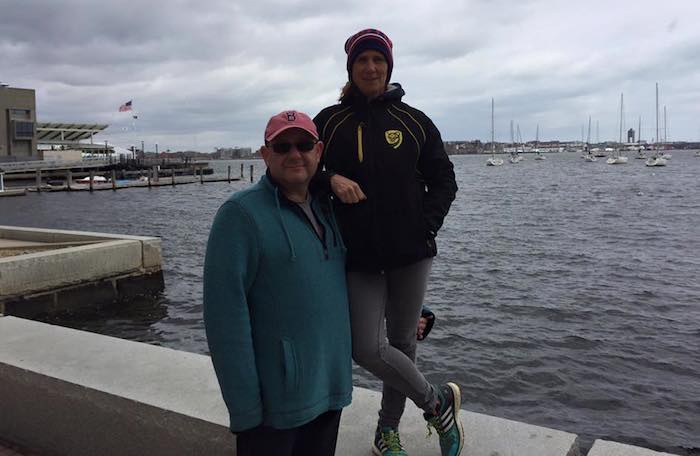
How are you now set in terms of recovery? You’ve had a significant surgery, the chemical ‘trauma’ of the chemo – not to mention any mental scars. That you’ve already returned (and won), is amazing, but do you think you’ll have to do things differently now, or perhaps try and develop other skills to overcome any restrictions or side effects?
From the outset I was determined not to use the condition, its treatment or side effects as an excuse. It would have been so easy to curl up into a ball and whimper “poor me”. That’s not exactly my style though and again, why I only told a very few people.
I didn’t make any real concessions during treatment, I just did what I could when I could and considered every step – however small – an achievement. So post treatment, no, I’m not doing anything differently. I will continue with physio to help rehab from the surgery, but I was having regular osteopathy anyway and actually the time off consistent training has led to my running niggles disappearing. In that respect, I’m a big step forward!
I have changed my diet substantially. I ate healthily already, but have since gone gluten and sugar free. The sugar free aspect will be the hardest to deal with in terms of finding fuel for racing; I haven’t found a good solution to this yet but am working on it.
From what you’ve been through, what you did at the British Duathlon Champs is amazing and, perhaps, the opposite of the “hurry slowly” approach?! However… given you are a a Bedford Harrier, live nearby and by chance the event was being held in Bedford this year – was there some sort of fate / extra incentive to try and be ready on your “home patch”?
I entered Bedford Duathlon without consulting my coach. I found I needed things in the diary to have a focus and remain positive. I told myself if I wasn’t ready then I could pull out. The fact that it was virtually in my back garden was just too tempting. I was meant to race the Essex 20 (miles) for the county last month, but had to concede that it was a little premature. So coach Perry told me to lower my expectations for Bedford as I was nowhere near race ready and to use it as a training session. To be fair, it was a jolly good training session!
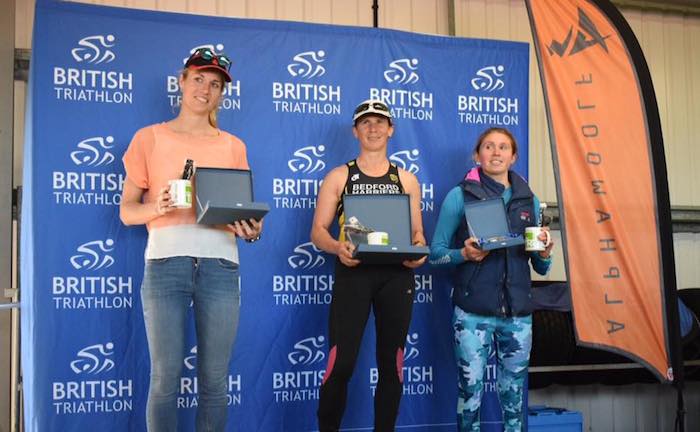
Having dealt with this whole situation as you’ve said, quite privately, how do you feel now – given that this interview is going to come as a big surprise to a lot of people? If Bedford was one step in the ‘moving on’ process, is this almost another?
When I was first diagnosed I trawled the net for information on how the treatment was going to affect me as an athlete and found virtually nothing. The only real reason for going public is to show others that a diagnosis like this is not the end of the world and definitely not the end of training and racing. Although there’s no such thing as a definitive all clear, I have put the whole process behind me as far as possible and am looking forward to getting back out on the race circuit.
What would you say are the key things you have learned / advice you would pass on to somebody else, who finds themselves with a similar ‘out of the blue’ shock to deal with?
The first advice I would give would be to make sure the medical specialists understand what you need your body to do and that chopping up major muscle groups about unnecessarily is not in your best interests; look for alternatives.
Secondly, if you are unlucky enough to have to undergo chemo (and there are often alternatives here too, despite what the doctors would like you to believe), treatment is only for a limited period and the healthier you are the better you cope with it and the quicker recovery happens.
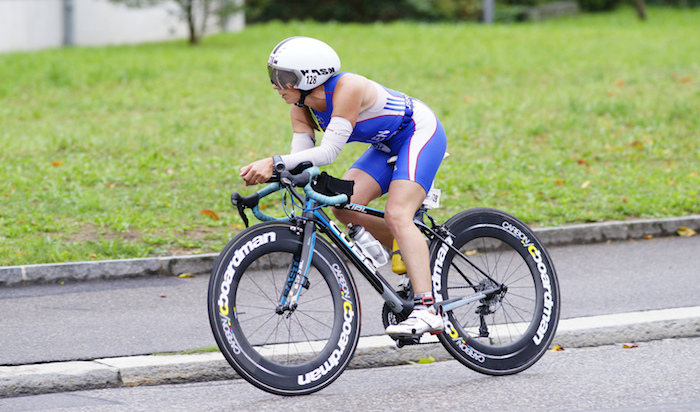
So, full steam ahead – I guess I have to ask then, what are your sporting goals now? You’ve been a regular in the GB suit (and in a GB track suit on the podium) in ITU/ETU competition for many years now. More of the same? Any more adventures in the pipeline?!
I was just starting to work on some new goals when I had to stop. I’m hoping I’ll be able to get back on track with them, but I’ve still got some way to go to get back to the fitness levels I had, so they’re on hold for a bit. I love the GB racing so I’ll keep doing that where I can and am looking forward to Canada later this year.
